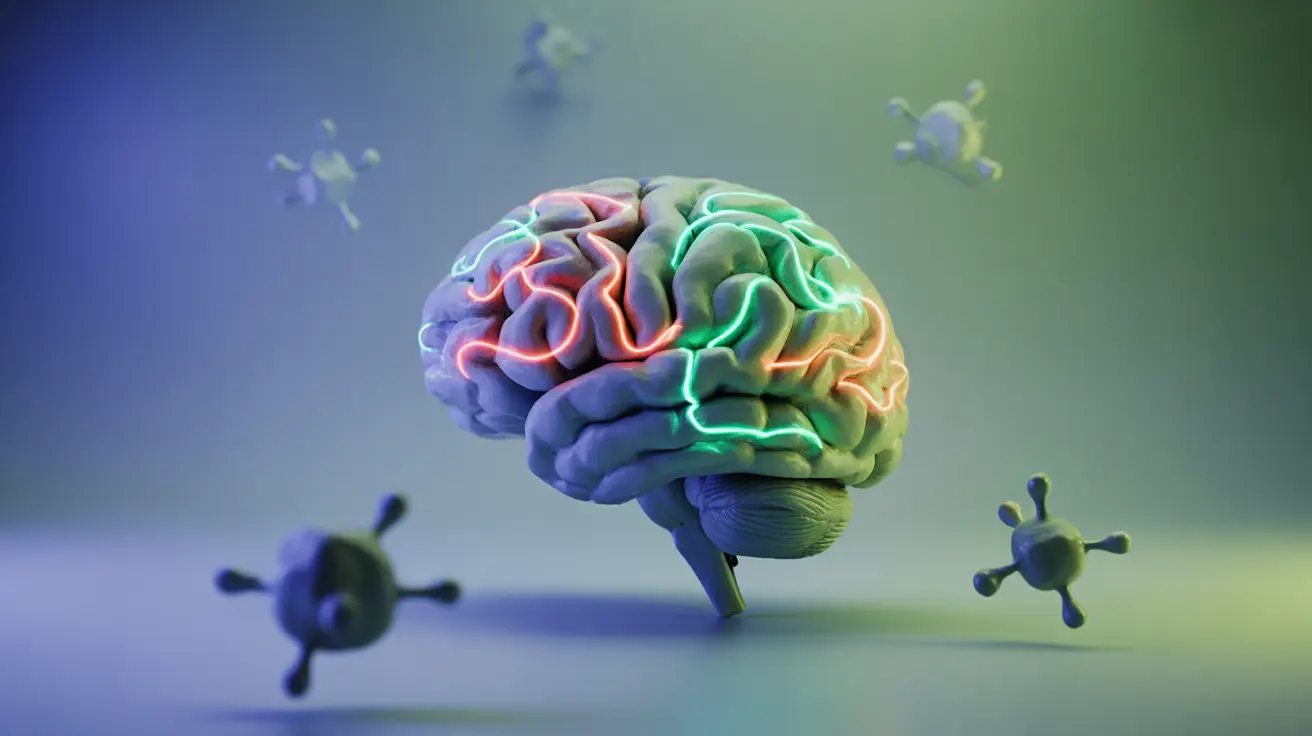Serotonin syndrome is a potentially serious drug reaction that occurs when there's too much serotonin in your body. This condition can develop when you take certain medications that affect serotonin levels, either alone or in combination. While it can be life-threatening if left untreated, understanding its causes, symptoms, and prevention strategies is crucial for anyone taking serotonergic medications.
This comprehensive guide will explore the essential aspects of serotonin syndrome, including its symptoms, causes, diagnosis, treatment options, and prevention strategies. Whether you're a patient taking antidepressants or a healthcare provider managing multiple medications, this information can help you recognize and respond to this condition effectively.
Understanding Serotonin Syndrome Symptoms
Serotonin syndrome typically develops within hours of taking a new medication or changing dosages. The symptoms can range from mild to severe and may include:
- Agitation or restlessness
- Confusion and disorientation
- Rapid heart rate and high blood pressure
- Dilated pupils
- Muscle rigidity or twitching
- Excessive sweating
- Tremors
- High fever
- Seizures in severe cases
The severity of symptoms can escalate quickly, making prompt recognition and treatment essential for preventing serious complications.
Common Causes and Risk Factors
Serotonin syndrome most commonly occurs when combining multiple medications that increase serotonin levels. The most frequent culprits include:
- Selective Serotonin Reuptake Inhibitors (SSRIs)
- Serotonin and Norepinephrine Reuptake Inhibitors (SNRIs)
- Monoamine Oxidase Inhibitors (MAOIs)
- Certain pain medications
- Some over-the-counter supplements, particularly St. John's Wort
The risk increases significantly when these medications are taken together or when doses are adjusted without proper medical supervision.
Diagnosis and Medical Assessment
Diagnosing serotonin syndrome requires careful evaluation by healthcare professionals. There's no single test that confirms the condition, but doctors typically:
- Review current medications and recent changes
- Perform physical examinations
- Check vital signs and neuromuscular reactions
- Order blood tests to rule out other conditions
- Monitor serotonin levels when necessary
Treatment Approaches
The primary treatment for serotonin syndrome involves immediately stopping the medications causing the condition. Additional treatments may include:
- Supportive care to stabilize vital signs
- Benzodiazepines for agitation and tremors
- Cooling measures for hyperthermia
- IV fluids for hydration
- Serotonin-blocking medications in severe cases
Most patients show improvement within 24-72 hours after discontinuing the triggering medications and receiving appropriate treatment.
Prevention Strategies
Preventing serotonin syndrome requires careful medication management:
- Always inform healthcare providers about all medications and supplements
- Keep an updated list of medications
- Never combine serotonergic medications without medical supervision
- Be aware of potential interactions with over-the-counter medicines
- Follow prescribed dosages strictly
Frequently Asked Questions
What are the common symptoms of serotonin syndrome and how soon do they appear after taking medication? Symptoms typically appear within several hours of starting a new medication or changing doses. Common signs include agitation, confusion, rapid heartbeat, dilated pupils, muscle rigidity, and excessive sweating.
Which medications and supplements are most likely to cause serotonin syndrome when taken alone or combined? SSRIs, SNRIs, MAOIs, certain pain medications, and supplements like St. John's Wort are most commonly involved. The risk increases significantly when these substances are combined.
How is serotonin syndrome diagnosed and what tests are used to rule out other conditions? Diagnosis is based on medical history, physical examination, and symptom evaluation. Blood tests, drug screening, and other diagnostic tests may be used to rule out other conditions.
What treatments are available for serotonin syndrome and how quickly do symptoms improve after stopping offending drugs? Treatment primarily involves discontinuing triggering medications and providing supportive care. Most patients show improvement within 24-72 hours after stopping the offending drugs.
How can serotonin syndrome be prevented, especially when taking multiple serotonergic medications or supplements? Prevention involves careful medication management, informing healthcare providers about all medications and supplements, avoiding unauthorized combinations of serotonergic substances, and strictly following prescribed dosages.




